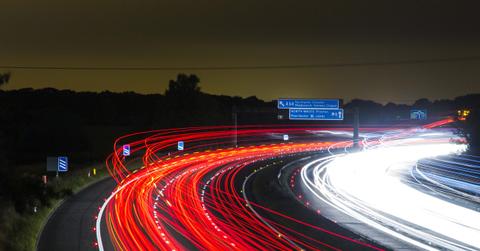South Korea Opens Test 'City' For Self-Driving Cars
K-City, South Korea's new autonomous vehicle testing facility, has opened up a four-lane highway to tech companies and car manufacturers. It's the first of an 80-acre fake city that features downtown segments and pedestrians for test vehicles to weave through.
Updated May 18 2019, 6:19 a.m. ET
South Korea has opened up the first part of their all new self-driving testing facility. Designed as a miniature "city," it gives automakers the chance to test prototypes on a four-lane highway model, without going straight into real-time traffic. The entire ground, which is called “K-City,” will feature all the elements of a traditional bustling city, so researchers can better predict how these cars would manage in real life. Even better? It's anticipated that the "city" will be fully operational by the end of 2018.
Technology companies and car manufacturers like Samsung, Hyundai, and Kia will all be involved with the new K-City. The opening of the highway was first so the country’s government can commercialize Level 3 autonomous vehicles in the next three years. There will be four lanes, an opposite path, intersections, and a toll gate for the test vehicles to roll through.
Level 3 is essentially the middle ground of self-driving; the vehicle can do a variety of tasks but the driver should always be alert to take control. This is just under the level of fully autonomous, which are the next two. Most companies are looking at Level 4, which provides a self-driving experience but still has manual control in non-applicable scenarios. Level 5 has no driver position or control in the vehicle.
K-City is being built in the Gyeonggi Province, which is around 20 miles away from Seoul. Nearly $10 million US has been invested into the project, and it will be around 80 acres big when it’s all completed at the end of 2018. Other sections to open up in the future are downtown areas, outskirts of the town, and community centers.
The testing facility will feature numerous real-life situations with narrow downtown roads, pedestrians, and various potholes. According to the Korea Herald, there will be “35 different driving conditions such toll gates, tunnels, intersections, construction sites and even train track crossings.“
Other handy aspects of K-City is the technological aspect for engineers, which are why companies like Samsung are involved. Wi-Fi will be included in the prototype vehicles and around the entire fake city. This provides an easy way to gather data when testing these self-driving vehicles in a wide variety of scenarios.
There are two high-profile fake cities that have been created for the development of autonomous vehicles in the United States. The biggest is University of Michigan’s Mcity, researching short-range communication among self-driving vehicles and using augmented reality to create many more unique situations than they can recreate manually.
Mcity is listed at 335 acres of testing ground. On a smaller scale, Waymo also has Castle in California, which is at approximately 100 acres. Google’s self-driving division built a testing center to fix problems they’ve run into during their practice runs in Arizona. Similar to Mcity, vehicles run through simulations, and it’ll be interesting to see if South Korea implements any of these situations into their fake city.

